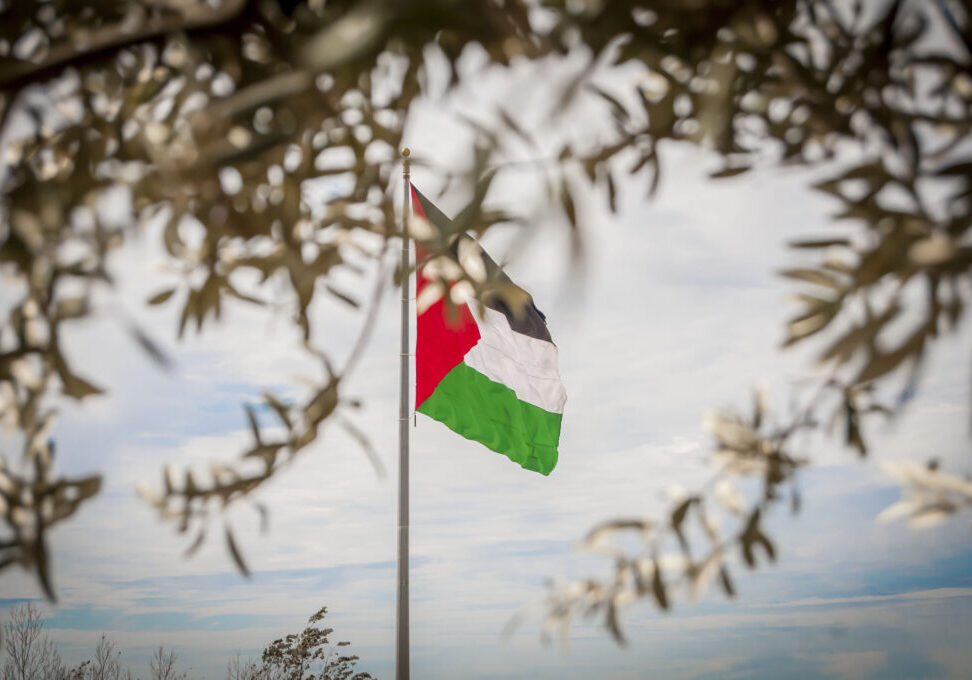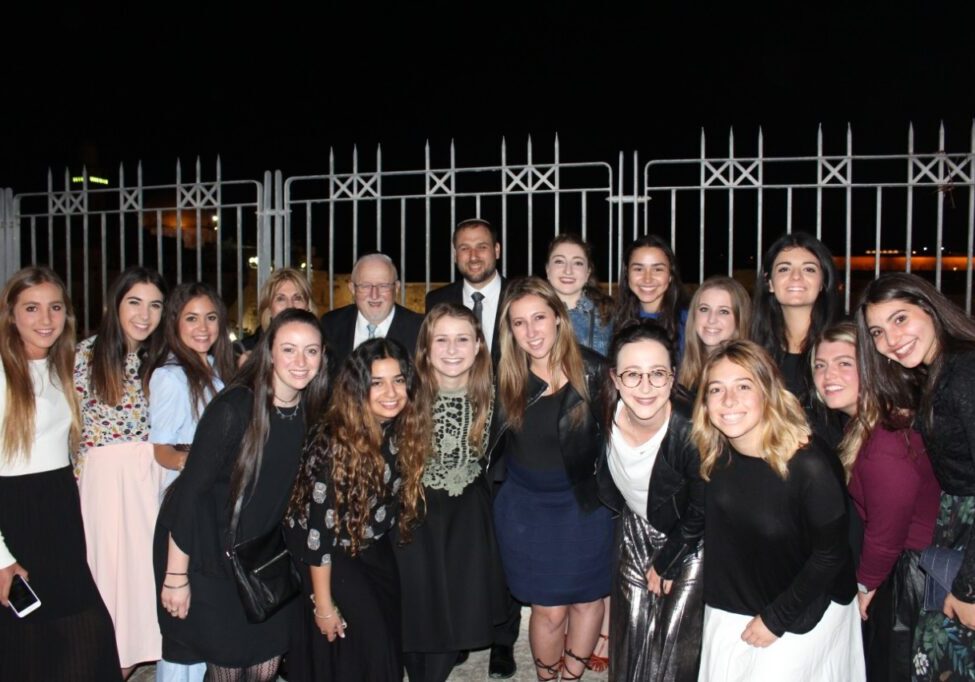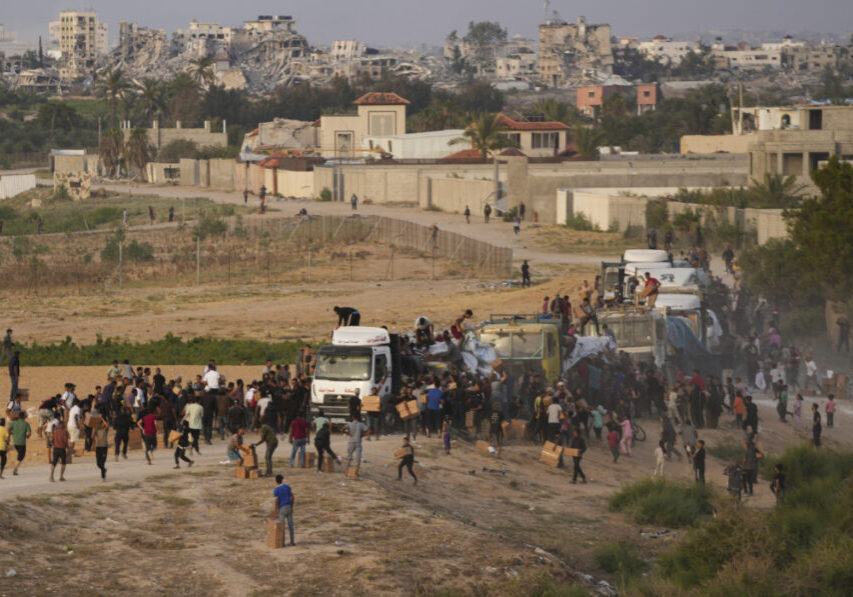Australia/Israel Review
Noted and Quoted – June 2023
May 24, 2023 | AIJAC staff

Hunger Games
Media reports of the events that followed the death of Khader Adnan, a senior leader of Palestinian Islamic Jihad (PIJ), in an Israeli prison after 87 days on a hunger strike in early May, were confused.
On ABC TV “Mornings” (May 3), Middle East correspondent Allyson Horn correctly said, “it was mid-afternoon when rocket alarms rang out across several towns surrounding the Gaza Strip. More than 20 rockets were fired from Gaza into southern Israel.”
But a follow up report later that day on the ABC website absurdly muddled the sequences of events: “in response to the death… Israeli jets struck in Gaza as armed groups there fired rocket barrages towards Israel.”
The Guardian Australia’s report on May 4 was given the flawed headline “Israel strikes Gaza as unrest continues after death of hunger striker,” with an introduction that mirrored the ABC article. In contrast, the Australian’s report from the Wall Street Journal on May 4 accurately stated that “militants in Gaza fired a barrage of rockets at Israel… after the death of a Palestinian hunger striker.”
Counting errors
A week after Adnan’s death, Israel targeted and killed three senior PIJ commanders in Gaza who had ordered the barrages of rockets be fired and were preparing further attacks.
A mini war broke out (see pp. 12-16), with more than 1,400 rockets fired at Israel from Gaza by PIJ, and Israel hitting more PIJ targets.
Media reports focused on the ratio of alleged civilian versus terrorist Palestinian fatalities based on figures supplied by Hamas-run health services in Gaza – which turned out to be incorrect (see p. 6).
On May 11, ABC TV “7pm News” Victorian edition newsreader Mary Gearin said, “at least 27 people have been killed, mostly Palestinian civilians.”
Middle East correspondent Allyson Horn’s report did note that “Israel says some militant rockets also fell within Gaza, killing civilians.”
Horn’s report earlier that day on ABC TV “Mornings” said, “Gazan health authorities say at least 20 Palestinians have been killed, among them, at least seven militants and also five children.”
An ABC online report said, “20 Palestinians – including at least five women and five children, as well as three senior Islamic Jihad commanders and four gunmen – have been killed.”
On May 12, ABC TV “The World” reported that “at least 30 Palestinians, mostly civilians, have been killed since Tuesday.”
A report on May 12, ABC TV “7pm News” Victorian edition erroneously said Israel’s capital is Tel Aviv.
On May 13, an ABC website report from Reuters noted that “Israel… says it had made every effort to limit civilian casualties… and accuses Islamic Jihad of deliberately locating its command centres in residential areas.” The report noted that like Hamas, PIJ “spurns coexistence with Israel and preaches its destruction.”
On May 14, ABC TV “7pm News” Victorian edition accurately said, “at least 33 Palestinians were killed in the past five days, among them, six senior Islamic Jihad commanders. Thirteen civilians also lost their lives, including children. Two people in Israel were killed by rocket fire from Gaza.”
A Matter of Timing
On May 11, ABC TV “The World” host Bev O’Connor inaccurately put it to Michael Chaitow, from the left-wing New Israel Fund Australia, that “maybe… 20 civilian casualties as part of this latest campaign. Can [Israeli air strikes] be more targeted?”
Chaitow said, “Gaza is one of the most densely populated places on Earth” but blamed far right Israeli minister Itamar Ben-Gvir for the conflict, claiming he “threatened to boycott the coalition” if there was no military action taken. This is incorrect – reports from Israel make it clear the operation was planned by the IDF on May 2 or 3, before Ben-Gvir began his grandstanding. The IDF then waited a week for the most appropriate moment to hit the three PIJ commanders.
Shaheen On
On ABC Radio National “Breakfast” (May 12), host Patricia Karvelas said Israel had “killed 28 people, including at least ten civilians, in the Gaza Strip” – which was accurate.
Yet the program’s guest, Gaza-based political science professor Ayman Shaheen, suggested that most of the dead were civilians.
According to Dr Shaheen, “Israeli air forces, they strike many houses, apartments and many civilian casualties, many civilians dead. We have six kids were killed within the last three days. And for women and other civilians, not for militants. There were five militants belong to Islamic Jihad, but the rest of the 29, just a few an hour ago… the number of the death people reached to 20, 29.”
He falsely said Gaza is the most densely populated area in the world. In fact, according to the World Population Review, “Gaza City itself is likely the 40th most densely populated urban area globally.”
Karvelas asked if PIJ had fired over 500 rockets at Israel “doesn’t Israel have the right to target militant leaders who direct these attacks against them?” Dr Shaheen suggested Palestinians have the right to fire rockets because Palestinians in Gaza are “under the occupation and these people is struggling for their freedom, for their independence.”
A Matter of Recognition
Nine Newspapers reported (May 5) that Israel’s Ambassador to Australia Amir Maimon had called on the Albanese Government not to act on the Labor Party’s national platform resolution calling for recognition of a Palestinian state.
The Australia Palestine Advocacy Network’s Nasser Mashni was quoted arguing that “Australia recognised Israel before a final peace settlement between the two sides and should do the same for Palestine.”
Australia’s diplomatic recognition of Israel in 1949 happened after it was already clearly an independent state and had survived the Arab war of aggression to destroy it. “Palestine” is not currently a state under the criteria laid down by international law.
Western governments believe that a Palestinian state should be created through negotiations that resolve all outstanding claims, not unilateral declarations that pre-empt that outcome and do not reflect realities on the ground.
The report noted that “most United Nations member states” recognise Palestine but Australia’s “close security partners… the United States, United Kingdom, New Zealand and Japan” do not.
This is misleading. No Western democracy recognises Palestine except Sweden, and many or most of the states that supposedly recognise “Palestine” recognised it in place of, rather than alongside, Israel during the Cold War.
The Nine report also noted that US commentator Michael Rubin – a recent AIJAC guest – has urged the Biden Administration to lobby Albanese not to recognise Palestine because doing so would “legitimise and encourage Palestinian, Hezbollah, and Iranian terrorism.”
Demolition job
Media reports of Israel’s demolition of an illegally built Palestinian primary school in Jabbet al-Dhib near Bethlehem omitted vital information.
An AFP/Reuters story on the ABC website (May 8) noted that Israel gave the village two months’ notice that the structures would be removed because they were illegally built and were a safety hazard and that the order to do so was upheld by a Jerusalem court.
The item included condemnation of the Israeli decision from the European Union, which had funded the school.
However, the report failed to point out that the school is located in Area C of the West Bank, which is under full Israeli military and administrative control under the 1993 Oslo Accords.
Also missing was that the fact that the EU has a deliberately provocative policy of giving funding to Palestinians to erect structures in Area C, even knowing that no building application is likely to be lodged, and Israel is therefore likely going to demolish them.
SBS TV “World News” ran a brief report on the subject on May 8 that was similarly deficient.
Assad Affair
On SBS TV “World News” (May 8), former academic Professor Amin Saikal said Syria’s readmittance to the Arab League was a “real U-turn…. it sends the message that the Syrian regime has survived and is there to remain.”
Reporter Claudia Farhart noted that eight of the 22 Arab League member states did not attend the meeting and that Qatar said the decision does not mean it will normalise relations with Syria. Melbourne University’s Dara Conduit was quoted saying the decision was motivated by neighbouring states wanting to “curtail the drug trade and… deal with the issue of [Syrian] refugee returns.”
Beyond rehabilitation
Guardian Australia columnist Simon Tisdall (May 15) slammed the Arab League’s decision to readmit and rehabilitate the regime of Syrian dictator Bashar al-Assad, which slaughtered at least 300,000 Syrian civilians during the civil war.
Yet, predictably, Tisdall devoted considerable space to attacking Israel, too.
Tisdall said,“Israel’s… unedifying attempts at ‘normalisation’ – by building alliances with Gulf autocracies to counter Iran and confederates such as Hezbollah – are imperilled if not confounded” by these developments.
Moreover, Tisdall said, “Then there’s their longest-running failure of all – the unfulfilled promise of Palestinian statehood. Palestinian civilian suffering has intensified as Israel, unchecked by Arab governments or the West, has lurched to the extreme right. The West Bank has seen more than 100 killings by security forces this year… renewed Gaza-related violence is claiming more innocent lives, predominantly Palestinian. Yet many western politicians, media and commentators behave as if this isn’t happening. This is what normalisation truly means in the Middle East. The killing of civilians has become routine.”
Except the overwhelming majority of those killed in both the West Bank and Gaza this year have not been civilians.
Terminal obsessions
On ABC RN “Saturday Extra” (May 13), inveterate anti-Israel BBC reporter Jeremy Bowen got in a couple of digs at Israel whilst discussing his new book, The Making of the Modern Middle East.
Bowen nominated three regional issues that needed to be dealt with including “the Israeli-Palestinian problem…because while it’s been going for a long time, sometimes it gets a bit ignored … It’s like a cancer at the heart of the region.”
The claim it is ignored is laughable – arguably only Russia’s invasion of Ukraine garners more attention than the Israeli-Palestinian conflict. Tellingly, Bowen felt no need to raise the Assad regime’s culpability for 500,000 dead Syrians, or the 12 million Syrians displaced during the civil war – half of whom remain refugees in neighbouring countries.
Distractions and infractions
Writing in the Australian (May 15), AIJAC’s Colin Rubenstein warned that Iran is using the world’s focus on “Ukraine and economic worries” to “test… the limits of Israel’s military restraint” by launching a “multifront campaign against the Jewish state” using its proxies based in Gaza, Syria and Lebanon.
Moreover, he added, “Iran’s aggressions today would worsen drastically if it were operating under a nuclear shield. This would massively magnify global proliferation and instability and greatly endanger the interests of the community of free nations, including Australia’s.”
History lessens
ABC Radio “Nightlife” (May 15) interviewed US historian Jeremy Pressman on the origins of the Israeli-Palestinian conflict.
Pressman said large scale migration of Jews to Palestine began in 1880 when the Ottoman Empire controlled the Middle East.
Asked if Jews acquired land “legitimately”, Pressman said, “I guess I find it hard to answer the question because the standards by which people in the 1930s, let’s say, would have judged land ownership were not exactly the same as the standards by which we would do it” but “the main thrust of Zionist control of land pre-1948 was the effort to purchase land.”
In discussing the 1947 UN Partition Plan that proposed dividing the territory into two states – one for Jews and the other for Arabs, Pressman correctly noted that the “Zionist movement… largely accepts the partition plan. The Palestinian leadership largely rejects the plan,” adding that “a lot of Palestinian leaders… before the UN votes refused to meet with the UN delegation that has come.”
Yet Pressman’s account of the war that followed was somewhat garbled – framing the Zionist forces as the aggressors, noting they captured more land than allotted under the UN plan. Whilst true, for the first few months of the war the Jewish side largely simply repulsed the attacks of Palestinian Arabs. As the British withdrawal in May 1948 approached and the Arab invasion loomed, they realised this approach was not sustainable and they needed to hold on to provisionally Arab areas that were being used as bases to attack the Jewish state and its vital lines of communication.
Pressman did explain that the Arab countries which invaded the newly established Jewish state on May 15, 1948, were motivated by their own territorial ambitions.
On what caused the displacement of Palestinian Arabs, Pressman favoured the Palestinian narrative.
He said, “I think it’s pretty clear that a significant number of them became refugees because they were expelled by Israeli forces… A number of other Palestinians did also flee, and sometimes Israel or its supporters will hold that up as sort of suggesting that Israel is somehow blameless. And while I’m not here to assign blame, I think what we see in many wars and many conflicts is that civilians, in an effort to survive, will flee a dangerous war situation seeking safer territory and safer shelter.” The fact that this was a war in which the Jewish community was in mortal danger was given less emphasis.
Pressman said that after the war’s end, Israel refused to allow Arab refugees to return. This is not strictly true – Israel did allow some Arabs to return, but given the bloody war of extermination it had just fought and won, and the fact that Arab states vowed never to make peace, allowing large numbers to return was obviously unwise.
Loew blows
To promote his new book The Palestine Laboratory, Nine Newspapers’ “Good Weekend” magazine (May 13) ran a long op-ed by anti-Zionist writer and activist Antony Loewenstein that regurgitated his ill-informed claims about both Israel and Australian Jews who support it.
He asserted that “to not believe in Israel was to somehow forfeit one’s name as a good Jew” and that in 2003, after he first said Israel’s actions “paralleled apartheid-like policies” and that “its treatment of Palestinians centred around a racist ideology,” he and his family were attacked and ostracised within the Australian Jewish community.
While any personal abuse he may have experienced from some individuals is regrettable, Loewenstein clearly thinks his extreme, angry and factually-challenged denunciations of Israel and all its supporters should be regarded as beyond reproach, while any efforts by those he slams as racist to criticise or rebut his often dubious claims, unfair generalisations and black hole-sized omissions of vital context amount to evidence he is being persecuted and silenced.
Implying that most Australian Jews oppose a Palestinian state, he said “it was possible to both support Israel’s right to exist and the rights of Palestinians.”
In fact, most Jews and mainstream Jewish organisations support the two-state formula for peace – and thus do exactly this. Loewenstein is actually the outlier who does not back this formula – he backs a one-state solution and Israel’s destruction, and thus does not support “Israel’s right to exist.”
Loewenstein said that during his first trip to Israel and the West Bank in 2005, he “began to see what the occupation of a subjugated people looks like: Israeli soldiers screaming orders at Palestinians at militarised checkpoints.”
What Loewenstein failed to tell readers is that when he visited, Israel had endured an unprecedented five-year campaign of terror known as the Second Intifada that resulted in the murder of more than 1,000 Israelis. His accusation that Israel practises apartheid is a sick misrepresentation of the security measures required to stop Palestinians carrying out terror attacks against Israelis that included suicide bombings in cafes and buses and mass rocket attacks from Gaza.
Moreover, Loewenstein failed to note that this wave of planned terrorist violence began only months after the Palestinians rejected then-Israeli PM Ehud Barak’s offer to create a Palestinian state that would’ve ended the so-called Palestinian “subjugation”, and subsequent offers to create a Palestinian state were similarly rejected in 2001 and 2008.
In Parliament
Foreign Minister Senator Penny Wong (ALP, SA) – May 10 – Twitter: “Australia is deeply concerned by the tragic loss of civilian life, including children, from Israeli airstrikes overnight in Gaza. We continue to urge all parties to exercise restraint. Civilian lives must be protected.”
Senator Wong – May 11 – Twitter: “The escalating violence in Israel and the Palestinian Territories is deeply concerning. Australia condemns the indiscriminate rocket fire from Gaza and respects Israel’s right to defend itself. We continue to urge all parties to exercise restraint and protect civilian lives.”
Senator David Shoebridge (Greens, NSW) – May 11 – “Israeli military strikes in recent days have killed women and children in Gaza, people trapped behind the Israeli-imposed blockade. With the recent election of the most extremist government in Israel’s history, led by Benjamin Netanyahu, the reality of the Nakba has never been more present or more terrifying for Palestinians than it is today. A second Nakba, pushed by senior members of this extremist Israeli government, is a real and growing threat… I will join with protesters in Sydney this Saturday to mark 75 years since the beginning of the Nakba.”
Senator Mehreen Faruqi (Greens, NSW) – May 9 – “The Nakba is live [sic] every day for the more than seven million refugees displaced during Israel’s creation and their descendants still awaiting justice. Every day Palestinians are killed or imprisoned or have their houses destroyed or their land taken by Israeli settlements, and they live under an apartheid system of laws… It is lived every day that they are denied the right of entry to their land. It is lived every day by the people in the Gaza Strip who are kept in an open-air prison camp because Israel and Egypt refuse to open the borders. It is lived every day in the West Bank as Israel’s settlements expand and settlers are allowed to behave with impunity.
“For 75 years the Palestinians have been betrayed by countries in the so-called West that refuse to hold their persecutor, Israel, to account and that give a blank cheque of diplomatic cover to anything the state of Israel does. That extends here to Australia and to this parliament, where there is a bipartisan commitment to the denial of Palestinian rights and a minimisation of the crimes of the Israeli state.”
Senator Paul Scarr (Lib., Qld) – May 9 – “During the month of April two incredibly important commemorations occurred in Brisbane… The first was the Holocaust Remembrance Day service, which took place on 16 April. We should remember and we should note in this place that this year is the 80th anniversary of the Warsaw Ghetto uprising, which was brutally put down by the Nazi regime, but one reflects a great heroism of those who participated, and pay respect to their courage. It was a very moving service this year, and I was particularly touched by the contribution of a number of young leaders from the Jewish community who made extraordinarily thoughtful presentations.”
Senator Scarr – May 2 – Legal and Constitutional Affairs Legislation Committee: “The first area that I want to explore with you is the fact that, when we talk about Nazi symbols, we’re talking about symbols which were particularly designed by Adolf Hitler and others to be an expression of an antisemitic ideology which necessarily flowed into industrial genocide; consequently, the manifestation and display of those symbols represents something more than simple freedom of expression or political communication because of the very nature of those symbols and how they’re embedded in the antisemitic ideology of the Nazi Party.”
Tags: Australia, Media/ Academia






